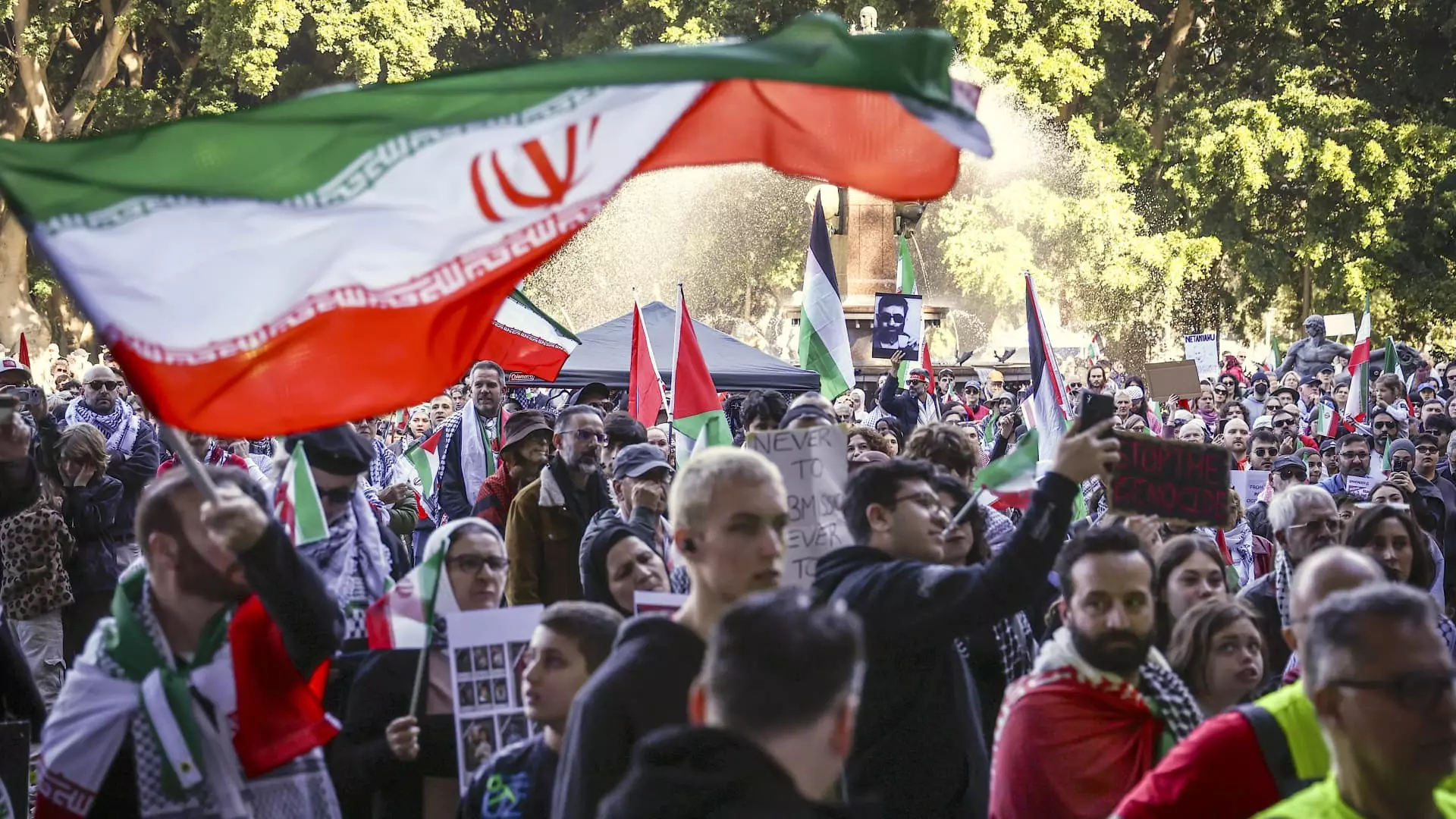The recent military attacks on Iran’s nuclear facilities, ordered by the U.S. and executed with the backing of its Israeli ally, represent a bold and reckless maneuver that threatens not only the immediate parties involved but the integrity of international relations as a whole. These actions, described by Iranian Foreign Minister Abbas Araghchi as “outrageous,” have triggered a dangerous spiral of escalation in a region already fraught with tension. It underscores a profound recklessness that could lead to an irreversible crisis, positioning both nations on a hair-trigger path.
Following these U.S. attacks on key nuclear sites, Araghchi’s assertion that Iran reserves all options to defend its sovereignty reflects a significant turning point; the long-standing verbal sparring and proxy skirmishes may now evolve into full-scale conflict. This critical moment marks a glaring failure of diplomacy and a vivid reminder of the consequences of political hubris. The recent missile and drone strikes executed by Iran against Israeli military targets not only illustrate a responsive but potentially devastating retaliation but also expose the fragility of stability in relations between Middle Eastern nations.
The Illusion of Military Success
President Donald Trump characterized these military strikes as “spectacularly successful,” claiming that they “completely obliterated” Iran’s capability to enrich uranium. However, the audacity of these claims, which lack independent verification, raises an alarming question: What is the true cost of such “military success”? A shallow victory over a near “enemy” may garner immediate nationalistic applause, yet it fails to account for the long-term repercussions on the geopolitical landscape.
The International Atomic Energy Agency’s reports of no radiation or contamination as well as the diplomatic talks that preceded the U.S. action have been markedly overlooked, painting a picture of a government increasingly guided by bravado rather than reason. By disregarding existing diplomacy through this military incursion, not only does the U.S. risk alienating potential allies, but it also jeopardizes the credibility of international norms designed to prevent such dangerous escalations.
The Failures of Diplomacy
Araghchi’s claims cast a stark light on the fragility of diplomatic negotiations; the very same week where constructive discussions were purported to take place with both U.S. and European powers, these negotiations were dismantled by reckless military action. The timeline clearly illustrates that diplomacy is not merely an option but a necessity for maintaining regional stability. The actions taken by both the U.S. and Israel reveal a glaring inadequacy in understanding the geopolitical context and the implications of such military decisions, scattering a glimmer of diplomatic hope.
The division among international stakeholders has become apparent, as regional powers like Saudi Arabia and Iraq express their alarm while Lebanon calls for restraint. Herein lies the irony: while Western powers are facilitating a bold strike against Iran, they ignore the vocal concerns from their regional allies, which could well expose their positions to future retaliation. The seriousness of this geopolitical game cannot be underscored enough; the trajectory is indicative of a considerable misstep by nations purporting to lead principles of democracy and stability.
A Call for Awareness
What we need now is a recalibration of priorities. Acknowledging the complexity of Middle Eastern tensions and understanding the vastly interconnected ramifications of direct military actions should replace the bravado of triumphalism. The calls from international figures, including United Nations Secretary-General Antonio Guterres, for caution and thoughtful deliberation have intensified. The looming threat of uncontained conflict could lead to an unimaginable tragedy not only for Iran but for countless civilians ensnared in the consequences of warfare.
In this moment of deliberation, as the dust settles on military maneuvers, we must summon the courage to recalibrate our approach to international diplomacy. Instead of warming up to the notion of “might makes right,” the world must re-emphasize the value of dialogue, negotiation, and understanding in a milieu that is teetering on the brink of chaos. The alarm bells have sounded; will we choose to heed their warning?

